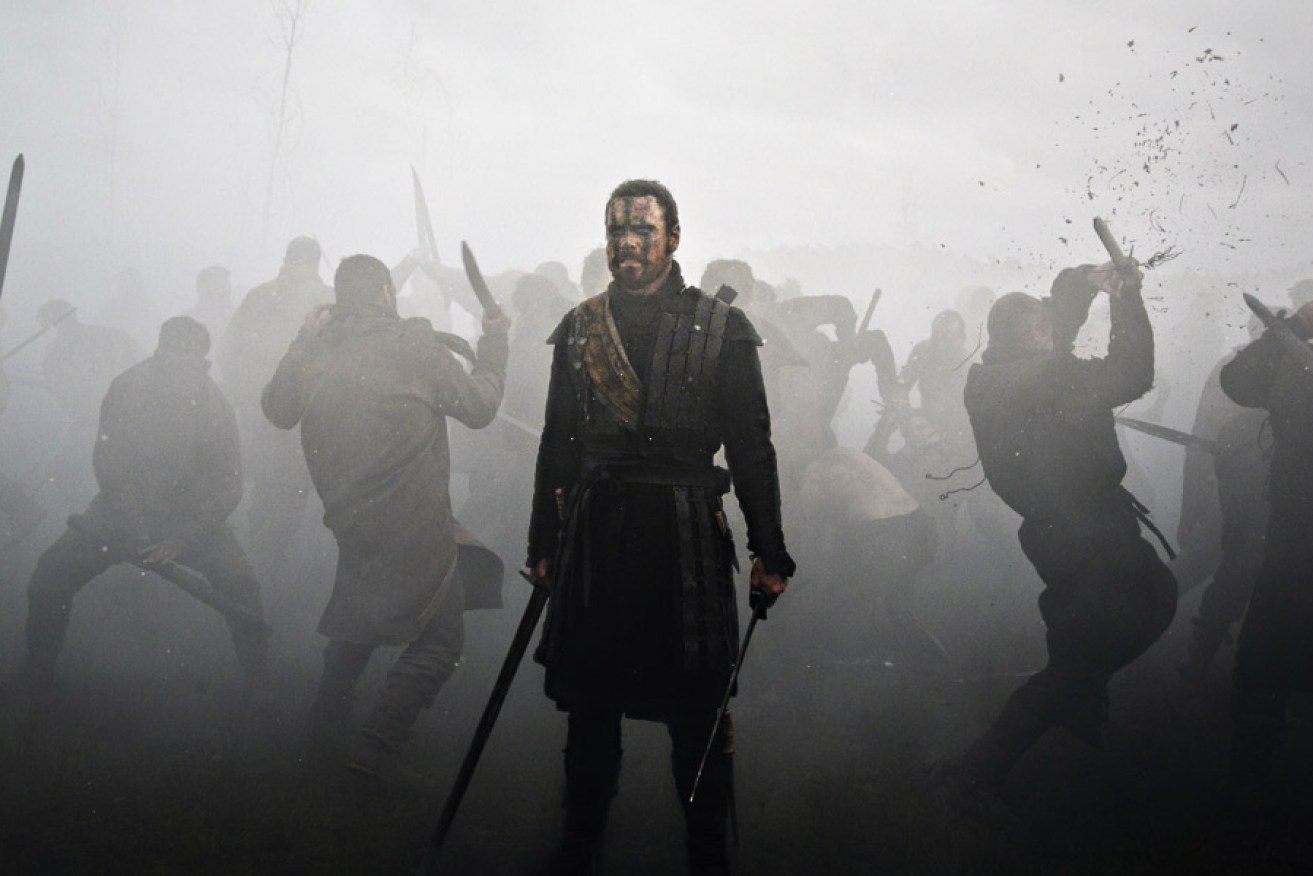One of Shakespeare’s bloodiest plays has been brought broodingly to life by South Australia’s Justin Kurzel.
Following the brilliant and disturbing Snowtown, Kurzel wasn’t tempted by lighter fare. His vision of Macbeth, shot on location in Scotland in the middle of winter, is bleak and foreboding and makes Game of Thrones look like Play School.
After victory fighting in a war for King Duncan (David Thewliss), Macbeth (Michael Fassbender) and his friend Banquo (Paddy Considine) are visited by witches who reveal that Macbeth will be Thane of Cawdor and King of Scotland and that Banquo will not be king himself, but that a long line of his sons will.
Upon hearing this news, Lady Macbeth (Marion Cotillard) hatches a plan for Macbeth to kill King Duncan when he visits their home. One killing leads to another, and when Macbeth does become king, the couple begin to unravel.
Fassbender bears the weight of his character well – from being unsure about his first murder, to abandoning all hope. Cotillard is electric as Lady Macbeth. The reverse of her husband and having recently suffered the loss of a child, she is perhaps initially more power-hungry than he, egging him on to murder King Duncan.
As Macbeth becomes more comfortable with killing, Lady Macbeth becomes increasingly guilt-ridden.
The technical aspects of Macbeth are world-class. Adam Arkapaw’s cinematography is a standout accomplishment, with shots that are likely to become iconic, while Oscar winner Chris Dickens’ dynamic editing brings a real sense of modernity to this well-worn tale. There are many chill-inducing moments.
Jacqueline Durran uses clever costume design to help tell the story – Macbeth’s royal vestments are pyjama-like and oversized. He’s depicted as a child playing dress-up.
Kruzel brings the same brutality to the violence in Macbeth as he did to the horrors of Snowtown. In making it as plain and unglamorous as he does, he’s able to actually shock the audience – audible gasps could be heard in the preview screening. In a time when on-screen violence generally fails to elicit any reaction at all from viewers, this is no small achievement.
If there’s one issue with the film, it’s that much of dialogue is essentially inaudible. While it’s necessary for the delivery of lines to be different in a film than on stage (and thankfully so), the combination of thick Scottish accents and fast talking mean that much of what is said is thrown away. The beauty of film as a medium, though, is that it can tell a story in a way that a play never could. Because Shakespeare’s stories are so timeless and well-known, this film could almost have been silent and we’d still know what was going on.
As it stands, Macbeth is a wonderful achievement and South Australians should be proud to call Justin Kurzel their own.





